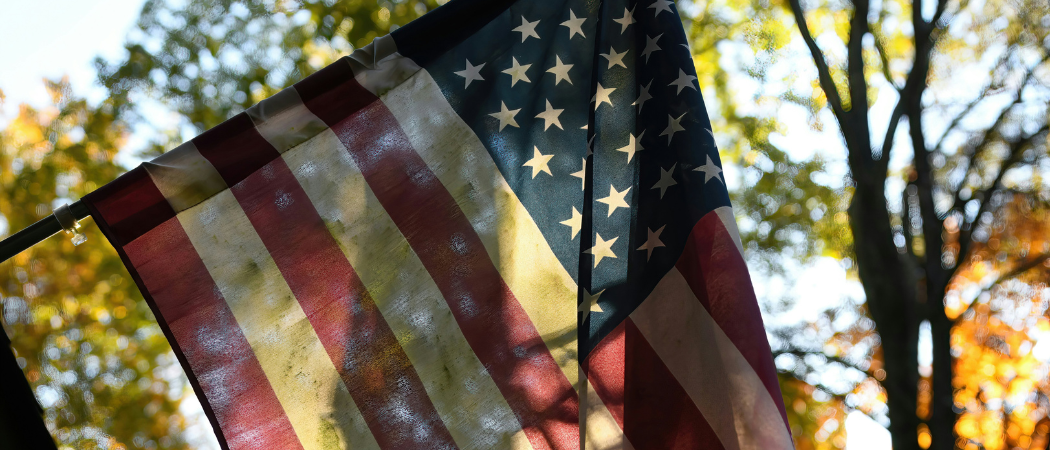Trump’s US foremost among democratic countries with heightened threats to academic freedom, says Scholars at Risk

Photo credits: Robin Jonathan Deutsch / Unsplash
Academic repression is increasingly being felt in traditionally democratic countries, according to a report from Scholars at Risk. The most striking case is the US, where a gradual erosion of academic freedom since 2020 has risen sharply since the return to power of Donald Trump.
The report says that the slew of executive orders in the US aimed at limiting support to academia are “either clearly extra-legal or pushed the boundaries of the law.”
For Robert Quinn, executive director of the New York-based organisation, this is “the first time first time a research and innovation superpower has voluntarily dismantled the infrastructure underpinning its global leadership.”
It is also symptomatic of a broader crisis in governance.
“There is a strong, reciprocal relationship between academic freedom and democracy,” Amy Kapit, senior programme officer on the advocacy team of Scholars at Risk and author of the report, told Science|Business. “The fact that we see these attacks occurring in democratic countries is primarily related to weakened democratic norms and democratic backsliding.”
The US joins a long list of countries where academic repression is the norm. “From Afghanistan to Serbia to the United States, state leaders have cracked down on student and faculty expression, banned the study of disfavoured topics, and targeted individual scholars and students for what they teach, study or say,” Quinn said in a statement.
Between 1 July 2024 and 30 June 2025, Scholars at Risk documented 395 attacks on higher education communities across 49 countries and territories, often marked by political instability, widespread corruption and human rights abuses.
Last year, military repression of Bangladeshi student protests against a quota system for government jobs turned deadly. In Zimbabwe, the authorities arrested and allegedly tortured student leaders claiming their right to freedom of assembly and expression. Looking east, abductions of Baloch students in Pakistan continue to multiply, which observers attribute to the government’s willingness to crush an educated, politically conscious generation.
“Universities are among the first targets of attack in places experiencing democratic decline,” Kapit said. “In part, this is because of the role that universities play as foundational democratic institutions, encouraging the accumulation, critique and formulation of new ideas and teaching students how to debate, engage in discourse and ask critical questions, including of those in power.”
Europe: safe or not?
Europe also has its dark points. In Serbia, the government took administrative action against universities after academics supported nationwide student protests. In the Netherlands, right-wing politicians in the governing coalition have challenged international programmes at Dutch universities. And in Hungary, researchers have felt the effects of an EU funding ban in response to perceived government interference in academia.
But these are exceptions, according to Liviu Matei, head of the School of Education, Communication and Society at King’s College London and rector of the Central European University at the time when it was forced to move from Budapest to Vienna. “Europe remains possibly the only region of the world were the commitment to protect and promote academic freedom is (still) strong in the public arena,” he said to Science|Business.
“The question is not if the trend of increasing attacks will continue, but whether this still strong European commitment will stay and prevail, whether it will help in practice to counteract that trend, at the national level in particular,” he went on.
Academic freedom is currently enshrined in the Charter of Fundamental Rights of the EU, which states that scientific research “shall be free of constraint.” Now, as part of efforts to improve the framework conditions for researchers in the bloc, the European Commission is preparing to legislate to strengthen the freedom of scientific research under the upcoming European Research Area Act.
Related articles
- Viewpoint: What can Europe and its universities do to halt the erosion of academic freedom?
- Political extremism creates ‘climate of anxiety’ for scientists
But for Matei, academic freedom is not just a legal principle, but also a human right, a value and a governance principle, which means that it cannot be protected solely through legislation.
Besides, the subsidiarity principle, which ensures that the EU only takes action when an issue cannot be dealt with effectively at the central, regional or local level, makes it even more complicated. “There is a great risk that any EU legislation will cover only freedom of research, but not freedom of teaching and learning,” he said. “That would be a skewed codification of academic freedom.”
Scholars at Risk has previously urged the Commission to recognise “the inseparability of research and teaching” if it is to protect the full scope of academic freedom under its new legislation, Kapit said. She also pointed out that states adhering to international legal standards and commitments based on their own domestic procedures for implementation was not in conflict with the principle of subsidiarity.
Support for academics
As a response to the global attacks described in its report, Scholars at Risk recommends that direct funding schemes be established to support academics and students at immediate risk. This could include offering them positions of academic refuge and employment, as well as opportunities to engage in on-campus activities.
Another priority is to publicly acknowledge the importance of academic freedom and institutional autonomy for both scientific progress and democratic advancement. To that end, governments should develop guidelines and methodologies, and strengthen legislative tools, the report says. Higher education institutions should speak out about the need to protect at-risk scholars, associations should encourage related research, and the media raise awareness about the phenomenon.
Scholars at Risk also recommends showing solidarity in efforts to implement protection measures, including active engagement from higher education institutions, regional coalitions and dedicated policies and frameworks.
When it comes to Europe, Matei is hopeful that experts will work with both the European Parliament and the Commission to come up with actions to better protect academic freedom. “Think of the US these days. We are in a much better situation in Europe in this regard to even talk about new, supranational regulations to protect, not suppress, academic freedom,” he said.





 A unique international forum for public research organisations and companies to connect their external engagement with strategic interests around their R&D system.
A unique international forum for public research organisations and companies to connect their external engagement with strategic interests around their R&D system.